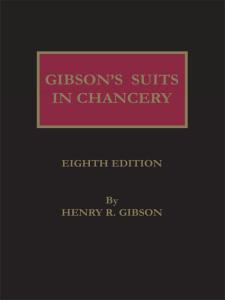By Judge Allen Phillips
Lawyers often file briefs in advance of evidentiary hearings, some of which are very helpful toward clarifying the issues, highlighting the critical evidence and identifying the applicable law. Other briefs are not so helpful; in fact, the word “kafka-esque” comes to mind.

It’s that second category that inspired this post about preferences for briefs. The title above is one strong suggestion; for more, read on.
The use of briefs in the Court of Workers’ Compensation Claims is governed by Rule 6 of the Court’s Practices and Procedures. To summarize, a brief should:
Exist. Rule 6.01 states that briefs are “encouraged” in both expedited and compensation hearings. A brief containing facts germane to the dispositive issue provides a road map for the Court in making findings of fact, and one that contains the applicable law leads the Court to authority helpful in making the required conclusions of law.
Be timely filed and served. Rule 6.01 states “any party who intends to submit a pre-hearing brief shall file and serve the brief on opposing counsel and/or parties at least ten business days prior to the scheduled hearing.”
Come before the hearing. Rule 6.02 provides that post-hearing briefs are “permitted only in extraordinary circumstances and with approval of the Judge.” In short, if the Court doesn’t ask for a post-hearing brief, don’t write it.
Contain a recitation of the facts a party expects to prove. Rule 6.03 states that briefs “should” contain this recitation. It should focus upon those facts important to your position on an outcome-determinative issue and be argued using the applicable burden of proof at the hearing. For instance, if you are seeking benefits at an Expedited Hearing, you must come forward with facts that are sufficient to establish you are “likely to prevail at a hearing on the merits,” the burden of proof required at that stage. Thus, the focus of your brief should be on those facts that help you establish that and not upon irrelevant facts.
Further, if the medical records submitted to the Court contain the information needed to support your position, there’s no need to repeat it again in the brief (or to attach them as appendices); the Court can find the information in the records. Direction of where to look is more helpful. Moreover, the length of your brief should be commensurate with the complexity of the issues.
Contain a statement of the applicable law. Again, Rule 6.03 states that briefs “should” include this. Include the authority directly bearing on the issue at hand. For example, if the issue is notice, the general standard can be stated in a sentence and the cited case law should mimic the specific facts as nearly as possible. A “string cite” of two or three cases that point out an employee must provide notice within a certain time and/or why he must do so is really overkill if you can simply cite the pertinent statute (e.g., Tennessee Code Annotated sections 50-6-201 or 202).
If you feel the need to include the standard required at a particular type of hearing, e.g. the likelihood of prevailing at a full hearing on the merits if briefing for an Expedited Hearing — then include the standard; but then immediately proceed to a recitation of the important facts with applicable law interspersed. This is a more readable and helpful format.
 Finally, Gibson’s Suits in Chancery is a wonderful old Tennessee law book, its first edition dating to 1891. Chancellor Gibson included a chapter called “Some Suggestions for Young Attorneys.” He rendered this sage advice for making an argument: “The most effective style for the Chancery Court is a plain, businesslike, matter-of-fact manner of presenting your case, conversational in tone and gesture, and far removed from the declamatory and gesticulatory style usual before juries.” As much fun as making a “declamatory and gesticulatory argument” may be, Chancellor Gibson’s advice for an effective style of argument applies equally as well to our Court, for briefs as well as oral argument.
Finally, Gibson’s Suits in Chancery is a wonderful old Tennessee law book, its first edition dating to 1891. Chancellor Gibson included a chapter called “Some Suggestions for Young Attorneys.” He rendered this sage advice for making an argument: “The most effective style for the Chancery Court is a plain, businesslike, matter-of-fact manner of presenting your case, conversational in tone and gesture, and far removed from the declamatory and gesticulatory style usual before juries.” As much fun as making a “declamatory and gesticulatory argument” may be, Chancellor Gibson’s advice for an effective style of argument applies equally as well to our Court, for briefs as well as oral argument.
In sum, the goal of your brief, as the Chancellor further noted, is, “if [an] argument is of any value and duly brief, the [Court] feels like thanking you.”

Judge Phillips sits in Jackson. He looks forward to thanking you for your “Gibson-esque” briefs.